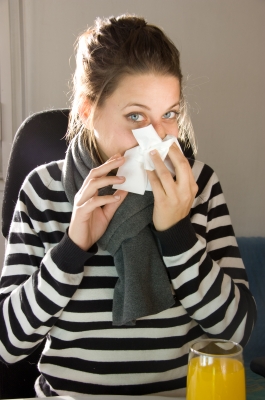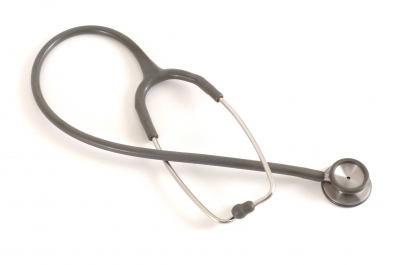![]()
Welcome to "Nighttime Nasal Congestion"
A good time to start dealing with nighttime nasal congestion, allergies and night coughing is today so study this subject for treatment, tips and cures... Nighttime Nasal Congestion is your online health source about night time nasal congestion and allergies ... On A Mission Providing Health Information Resources for Disease and Medical Condition Prevention, Treatment and Cures...
 Nocturnal nasal congestion is a strong independent risk factor for ongoing snoring, including snoring without sleep apnea.
Nocturnal nasal congestion is a strong independent risk factor for ongoing snoring, including snoring without sleep apnea.
Nasal congestion
Nasal congestion refers to a stuffy nose.
Many people think that a nose gets congested (stuffy) from too much thick mucus. However, in most cases, the nose becomes congested when the tissues lining the nose become swollen. The swelling is due to inflamed blood vessels.
Newborn infants must breathe through the nose. Nasal congestion in an infant's first few months of life can interfere with nursing, and in rare cases can cause serious breathing problems. Nasal congestion in older children and adolescents is usually just an annoyance, but it can cause other difficulties.
Nasal congestion can interfere with the ears, hearing, and speech development. Significant nighttime nasal nose congestion may interfere with sleep.
When nasal stuffiness is just on one side, the child may have inserted something into the nose.
Causes of Nasal congestion
A stuffy nose is usually caused by a virus or bacteria. Causes include:
- Common cold
- Flu
- Sinus infection
The congestion typically goes away by itself within a week.
Congestion also can be caused by:
- Hay fever or other allergies
- Use of some nasal sprays or drops for more than 3 days (may make nasal stuffiness worse)
- Nasal polyps
- Pregnancy
- Vasomotor rhinitis
Home Care for Nasal Congestion for Infants & Younger Children
For babies or infants who are too young to blow their nose:
- Buy saltwater (saline) nose drops or make your own by stirring 1/4 teaspoon of salt into 1/2 cup lukewarm water (make this fresh every day).
- Lay your child on his or her back, placing a rolled towel underneath the shoulders. Put 2 or 3 saline nose drops into each nostril. Wait 30 - 60 seconds.
- Turn the child on the stomach to help the mucus drain. Try to catch the discharge outside the nostril on a tissue or swab. Roll the tissue or swab around, and pull the discharge out of the nose. Do not insert a cotton swab into the child's nostrils.
- You can use an infant nasal bulb (aspirator) to help remove the mucus. Squeeze the air out of the bulb and then gently place the tip into the nostril. Let the air come back into the bulb, pulling the mucus out of the nose with it. Squeeze the mucus onto a tissue.
Other tips to help infants and younger children include:
- Raise the head of your child's bed. Put a pillow underneath the head of the mattress. Or, place books or boards under the legs at the head of the bed.
- Encourage your child to drink plenty of fluids. Breast-feed or formula-feed young infants often. Older children may drink extra fluids, but those fluids should be sugar-free.
- You can try a cool-mist vaporizer, but avoid putting too much moisture in the room. Clean the vaporizer every day with bleach or Lysol®.
- You can also steam up the bathroom shower and bring your child in there before bed.
- Nasal sprays and cough and cold medicines are not recommended for children under age 2. They also do not seem to be effective in older children.
OLDER CHILDREN AND ADULTS
Over-the-counter medicines may help relieve a stuffy nose and can make breathing more comfortable.
- Decongestants shrink the blood vessels in the lining of the nose. These medicines only relieve stuffiness, not a runny nose or other symptoms. Decongestant nasal sprays and drops should not be used for more than 3 days, because after that time they can make the congestion worse.
- Antihistamines may reduce the amount of mucus. Be careful, because some antihistamines make people drowsy.
These medicines do not treat the underlying condition. Many over-the-counter allergy and cold medicines contain multiple ingredients, so look carefully to see what is in the one you choose.
Medicines are not the only way to relieve a stuffy or runny nose. Often, gentler solutions are better. Try these steps to thin the mucus, which can help you breathe easier and get nasal secretions back to normal:
- Use gentle saline nasal sprays.
- Increase the humidity in the air with a vaporizer or humidifier.
- Drink extra fluids. Hot tea, broth, or chicken soup may be especially helpful.
Congestion is often worse when you are lying down. Keep upright, or at least keep the head elevated. This is especially helpful for young children.
Some stores sell adhesive strips that can be placed on the nose. These help widen the nostrils, making breathing easier.
When to Contact a Medical Professional for Nasal Congestion
Call your doctor if you or your child have any of the following:
- A stuffy nose along with swelling of the forehead, eyes, side of the nose, or cheek.
- A stuffy nose along with blurred vision
- Increased throat pain, or white or yellow spots on the tonsils or other parts of the throat
- Coughing episodes that last longer than 10 days
- A cough that produces yellow-green or gray mucus
- A stuffy nose that lasts longer than 2 weeks and significantly interferes with your life
 What to Expect at Your Office Visit for Nasal Congestion
What to Expect at Your Office Visit for Nasal Congestion
Your doctor may perform a physical examination, focusing on the upper respiratory system, ears, nose, and throat.
Your doctor will ask questions, including:
- When did the stuffy nose begin? Is it always stuffy?
- What have you done to try to relieve the congestion? How well has it worked?
- What other symptoms do you have?
The following diagnostic tests may be done:
- Allergy skin tests (performed only by allergists)
- Blood tests (such as CBC or blood differential)
- Sputum culture and throat culture
- X-rays of the sinuses and chest x-ray
- Serum total IgE (the allergy-related immunoglobulin)
Nose Disorders
Whether it's large or small, button-like or beak-like, your nose is important to your health. It filters the air you breathe, removing dust, germs and irritants. It warms and moistens the air to keep your lungs and tubes that lead to them from drying out. Your nose also contains the nerve cells that help your sense of smell. When there is a problem with your nose, your whole body can suffer. For example, the stuffy nose of the common cold can make it hard for you to breathe, sleep or get comfortable.
Many problems besides the common cold can affect the nose. They include:
- Deviated septum - a shifting of the wall that divides the nasal cavity into halves
- Nasal polyps - soft growths that develop on the lining of your nose or sinuses
- Nosebleeds
- Rhinitis - inflammation of the nose and sinuses sometimes caused by allergies. The main symptom is a runny nose
Sinusitis
Sinusitis means your sinuses are infected or inflamed. Your sinuses are hollow air spaces within the bones surrounding the nose. They produce mucus, which drains into the nose. If your nose is swollen, this can block the sinuses and cause pain and infection.
Sinusitis can be acute, lasting for less than four weeks, or chronic, lasting much longer. Acute sinusitis often starts as a cold, which then turns into a bacterial infection. Allergies, pollutants, nasal problems and some diseases may also cause sinusitis.
Symptoms of sinusitis can include fever, weakness, fatigue, cough and congestion. There may also be mucus drainage in the back of the throat, called postnasal drip. Treatments include antibiotics, decongestants and pain relievers. Using heat pads on the inflamed area, saline nasal sprays and vaporizers can also help.




